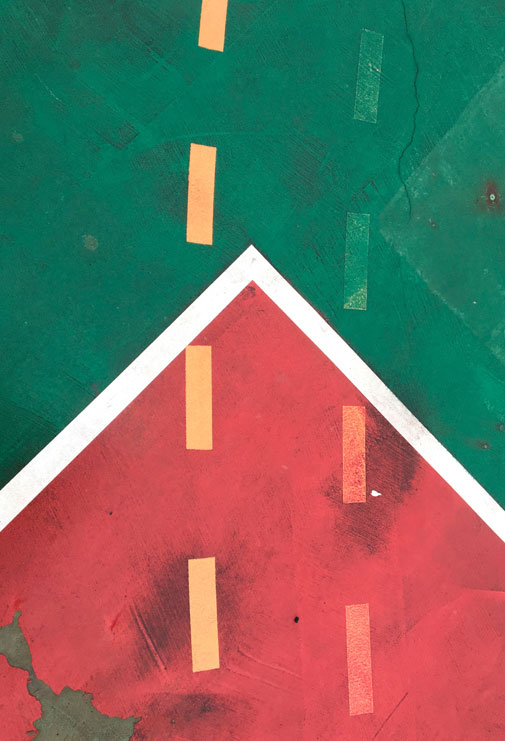- Vol. 07
- Chapter 06

Obvious
We had a joke about bad poems starting with “_____, she thought,” or “____, he said”—
we came up with this joke on the road between
Portland and Ashland. We also had a joke about novels
being called things like “The Space Between.”
I’ve never written a successful poem before, I told
him. (He’s a poet.) What do you have to do?
The only thing I remember him saying was not to
end lines on prepositions. Or was it just on “obvious”
words?
In the space between Portland and Ashland, there’s an obvious
highway. Obvious because it’s the quickest way to
whichever “land” you’re heading to, Ash or Port. There was something called a volta, he said, furthermore, as we swept past the forest, where I wanted, obviously, to linger.
Is that the thing where the meaning kind of funnels together
towards the end, I asked. Like the chevron of a road
(highways only actually start/end at the ocean, technically, they merge into
one another all the way to the ocean) or
the windworn tip of a red A-frame.
Yes, he said, I think now.
Well actually, he said,
what it really means is a turn.
The kind a reader doesn’t see coming, but
makes a certain kind of sense.
Obvious
I’ve gotten so tired, now, of the hidden presence of the obvious.
Even the turns feel obvious. The destination, certainly.
To shroud anything in mystery at this point feels obscene.
Still, there’s something always kind of unexpected
about seeing what’s in
your own brain, after all. Things disappear, reappear, or were never fully known—
the invisible tracks of a car, a conversation suspended in airlessness, and then,
outside, everywhere, every square mini-mini-millimeter of ground
never tested, never seen.
